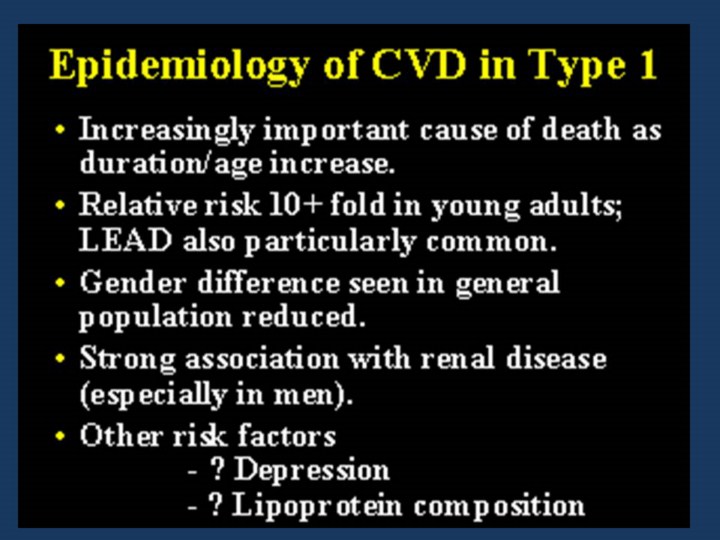Search inside of Supercourse and lectures in HTML and PPT format
 |
 |
front |1 |2 |3 |4 |5 |6 |7 |8 |9 |10 |11 |12 |13 |14 |15 |16 |17 |18 |19 |20 |21 |22 |23 |24 |25 |26 |27 |28 |29 |30 |31 |32 |33 |34 |35 |36 |37 |38 |39 |40 |41 |42 |43 |44 |45 |46 |47 |48 |49 |50 |51 |52 |53 |54 |55 |56 |57 |58 |59 |60 |61 |62 |review |
 The epidemiology of heart disease in Type 1 diabetes is a little different for the relative risk is much higher and often reaches 10+ fold, reflecting the relatively low mortality from heart disease in young adults seen in the general population. As in Type 2 diabetes the gender difference in rates seen in the general population are greatly reduced. One of the strongest predictors of cardiovascular disease in Type 1 diabetes is the presence of kidney disease, particularly in men. The reasons for this may include a shared genetic predisposition to hypertension, a similarity in the pathogenetic process because athero- and glomerular sclerosis are very similar processes pathologically. Kidney disease also increases the levels of cardiovascular risk factors, blood pressure, fibrinogen and lipids for example. LDL cholesterol and triglycerides and smoking increase the risks of both CVD and kidney disease. Other risk factors include depressive symptomatology. |
|